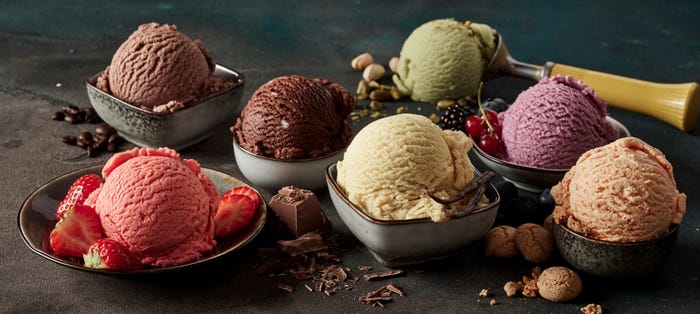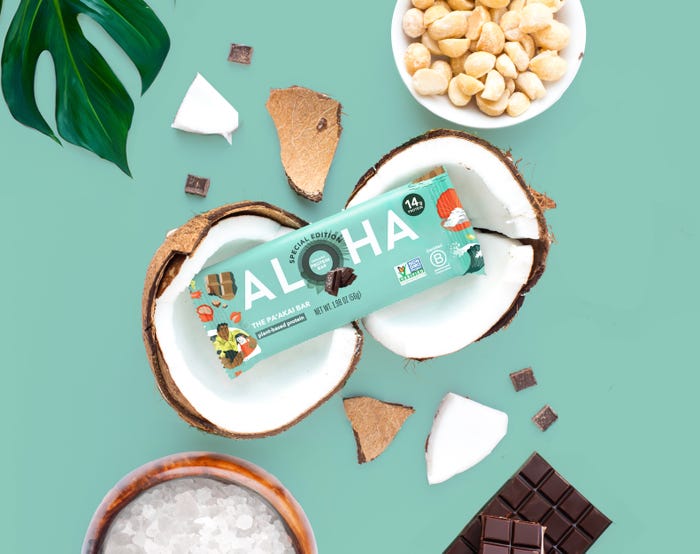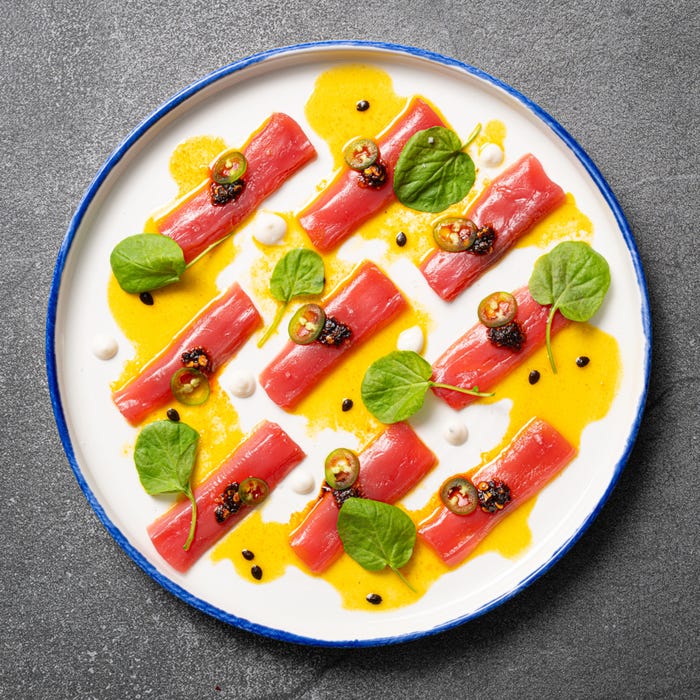Business Bites: FDA shocks nation, world with ban on chicken nuggets
6 heaping cups of news: From a shocking FDA ban to a $6 billion eco-friendly ice cream plan, brace yourself for legal battles, sustainability leaps and sweet surprises in this week’s Business Bites.

At a Glance
- McDonald’s claims exemption from FDA’s radical ban on chicken nugget products.
- Three multimillion-dollar federal projects seek to decarbonize the food and beverage industry.
- Oobli is the first sweet protein producer to receive a “no questions” letter from FDA.
The U.S. Food and Drug Administration (FDA) has made a somewhat startling decision to enact a nationwide ban on chicken nuggets due to health concerns, sparking controversy and legal battles. That isn’t the only surprising news, however; the U.S Department of Energy (DOE) launched a $6 billion initiative aimed at reducing the carbon footprint of various industries, including ice cream. Also, Oobli received a “no questions” approval letter from FDA for its innovative Oubli Fruit Sweet Protein, marking a potentially massive shift in the landscape of alternative sweeteners.
FDA issues sweeping ban on chicken nuggets
In a shocking, unprecedented move, FDA has issued a nationwide ban on all nugget-shaped chicken-based products currently available for sale in stores and restaurants. The agency cited a new study claiming these deep-fried items are “not very good for you.”
McDonald’s has already filed suit, claiming the “Mc” in “Chicken McNuggets” exempts them from the prohibition, while federal legislators are heatedly debating whether so-called “boneless wings” should be included. Horrified 6-year-olds across the nation are reportedly mobilizing in protest.
“Kids today,” Erasmus Wonzbox, head of poultry affairs at FDA, said in a statement. “It’s a crying shame that kindergarteners in the U.S. aren’t learning about proper nutrition. These nuggets pose a real threat to public health, especially the dinosaur-shaped ones.”

Biden targets ice cream with $6 billion project to cut carbon footprint
As part of a $6 billion plan — funded by the Biden-Harris administration’s Bipartisan Infrastructure Law — DOE recently announced a goal to transform America’s industrial sector while reducing planet-warming emissions through 33 special projects across 20 states. The industries represented by these projects run the gamut, including food and beverage.
Three multimillion-dollar projects will tackle sustainability challenges in the food and beverage industry, focusing on decarbonizing products like ice cream. How do you decarbonize ice cream? Apparently, by ensuring that consumer goods giant Unilever replaces natural gas boilers with industrial heat pumps in four ice cream manufacturing facilities, which will reduce emissions associated with producing Ben & Jerry’s, Klondike bars, popsicles and other popular products.
Oobli receives FDA “no questions” letter for sweet protein
For some, “sweet protein” might sound like a dream come true; for others, it’s a nightmare. For Oobli, a global provider of sweet proteins, it might be the future of food. That’s because Oobli is the first company in the category to receive a “no questions” letter from FDA for the use of its Oubli Fruit Sweet Protein as an ingredient in food. This protein, derived primarily from fruits found in West Africa, can reportedly replace 70% or more of sugar in products like sodas, baked goods and more without affecting blood sugar, insulin or the gut microbiome.
“The ‘no questions’ letter from the FDA is a further testament to the strong potential that sweet proteins have to disrupt our global dependence on sugar and alternative sweeteners,” Ali Wing, CEO of Oobli, said in a press release. “The Oubli Fruit Sweet Protein can be safely used in various foods with support from the general scientific community and the FDA.”

Photo courtesy of Aloha
Terviva, Aloha collaborate to develop plant-based protein bar with pongamia oil
Plant-based products are all the rage. Innovative formulations are popping up every day, including the new product from agricultural innovation company Terviva and plant-based protein company Aloha. The two companies recently partnered to release a special edition protein bar, Pa’aki Bar, which was formulated using Terviva’s Ponova oil derived from pongamia (Pongamia pinnata) trees. In Hawaiian, “pa’akai” means “solid ocean” or “sea salt,” a term that carries great cultural significance as a staple for preserving and flavoring food. The new product was developed using Hawaiian sea salt, macadamia nuts grown in Hawaii using renewable energy, USDA-certified organic dark chocolate, Aloha’s signature plant protein blend and Ponova oil. The plant-based oil, known for its range of health benefits, is a sustainable ingredient with a neutral flavor that can be used in various applications such as alt-dairy, baked goods and plant-based meat. Terviva produces its Ponova oil from an equitable supply chain in subtropical regions of the U.S. and India, supporting local communities and farmers.
Dsm-firmenich opens new facility in New Jersey to aid food, beverage companies
A European-based company is expanding its footprint in the U.S. Nutrition, health and beauty company dsm-firmenich announced a new, state-of-the-art facility in Plainsboro, New Jersey, which aims to help food and beverage companies scale their operations. Designed to enable strong customer collaboration, the new pilot plant is part of the company’s taste, texture and health business unit, supporting its commitment to accelerate global diet transformation. The facility offers a full range of capabilities and equipment to help businesses transition from development to small, scale-up production. It’s focused on beverage production, including applications like juices, ready-to-drink (RTD) coffee and tea, sports drinks, carbonated soft drinks, sparkling water, energy drinks, as well as dairy- and plant-based milks, creamers and protein shakes. The new plant is located adjacent to dsm-firmenich’s development labs, consumer sensory lab and focus group room, which are part of the company’s taste, texture and health North American headquarters.

Photo courtesy of AQUA Cultured Foods
Ginkgo Bioworks, AQUA Cultured Foods partner to advance alt-seafood formulations
The plant-based seafood market is growing at an exponential rate. Valued at $42 million in 2021, the global market is expected to experience a compound annual growth rate (CAGR) of 42% from 2022 to 2031 to reach a $1.3 billion valuation, according to Allied Market Research. Food tech company AQUA Cultured Foods, which produces alt-seafood products using microbial fermentation, recently partnered with biotech company Ginkgo Bioworks to advance the development and production of its animal-free fish products that emulate traditional seafood. AQUA Cultured Foods currently offers vegan tuna and scallop products, which are made from microbes and fibers combined with plant-derived flavors. The products also maintain freshness for six weeks, according to the company. To assist in AQUA’s manufacturing process, Ginkgo Bioworks will “leverage its high throughput next-generation sequencing and advanced analytics services to help optimize and tune AQUA’s strains.”
“Beyond sequencing, we envision engineering our proprietary consortium for next-gen products, pushing alt-seafood boundaries with unique textures and building the nutrition beyond a good source of fiber,” Stefan Baier, Ph.D., chief science officer at AQUA Cultured Foods, said. “We look forward to how our sustainable approach can revolutionize the fishing industry and contribute to the regeneration of our oceans.”
The first item about FDA banning chicken nuggets is an April Fools’ joke. The rest of the column is legit — we promise.
About the Author(s)
You May Also Like








